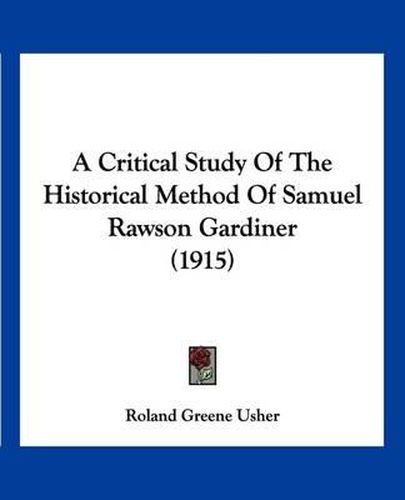Readings Newsletter
Become a Readings Member to make your shopping experience even easier.
Sign in or sign up for free!
You’re not far away from qualifying for FREE standard shipping within Australia
You’ve qualified for FREE standard shipping within Australia
The cart is loading…






Purchase of this book includes free trial access to www.million-books.com where you can read more than a million books for free. Excerpt from book: Section 3Ill THE PROBLEM OF CONSISTENCY With the possible exception of Mary Stuart, hardly a character in all English history has been more discussed than Charles I. From the time he was born, opinions about him. differed; during his life-time, blood was freely shed for and against him; since his death he has been vilified and canonized, the eulogiums of Dr. Sacheverell being succeeded by the harsh judgments of Macaulay and his ilk. If there is one man whose opinions on Charles should be worthier of acceptance than another’s, it is Dr. Gardiner. The briefest way of testing his views on this violent controversy is to examine his opinions on what has been for at least two centuries its moot point, the Eikon Basilike. Dr. Gardiner declared in the ninth volume of the textit{History of England, that it was a matter of indifference whether Charles or Gauden wrote that book, but he adds: What I am concerned to affirm is that Charles’s real character and views are portrayed in the book. 1 What he thought the book showed Charles to be appears in the last volume of the textit{Great Civil War, where he says that the book is a spiritual revelation of the inmost thoughts of the justest of sovereigns and the most self-denying of martyrs. His earlier idea that this was Charles’s real character, he has now given up, for he goes on to say that the book served to create an ideal image of Charles, and possessed enough of dramatic veracity to convince all textit{who were prepared to believe it, that they had before them the real thoughts of the man. 2 He then explains that this ideal view of the King secured its hold on men’s imaginations because it faithfully reproduced at least one side of Charles’s character. Gardiner has thus said that this book shows us the real Charles, that it portrays an ideal Charles so unlike t…
$9.00 standard shipping within Australia
FREE standard shipping within Australia for orders over $100.00
Express & International shipping calculated at checkout
Purchase of this book includes free trial access to www.million-books.com where you can read more than a million books for free. Excerpt from book: Section 3Ill THE PROBLEM OF CONSISTENCY With the possible exception of Mary Stuart, hardly a character in all English history has been more discussed than Charles I. From the time he was born, opinions about him. differed; during his life-time, blood was freely shed for and against him; since his death he has been vilified and canonized, the eulogiums of Dr. Sacheverell being succeeded by the harsh judgments of Macaulay and his ilk. If there is one man whose opinions on Charles should be worthier of acceptance than another’s, it is Dr. Gardiner. The briefest way of testing his views on this violent controversy is to examine his opinions on what has been for at least two centuries its moot point, the Eikon Basilike. Dr. Gardiner declared in the ninth volume of the textit{History of England, that it was a matter of indifference whether Charles or Gauden wrote that book, but he adds: What I am concerned to affirm is that Charles’s real character and views are portrayed in the book. 1 What he thought the book showed Charles to be appears in the last volume of the textit{Great Civil War, where he says that the book is a spiritual revelation of the inmost thoughts of the justest of sovereigns and the most self-denying of martyrs. His earlier idea that this was Charles’s real character, he has now given up, for he goes on to say that the book served to create an ideal image of Charles, and possessed enough of dramatic veracity to convince all textit{who were prepared to believe it, that they had before them the real thoughts of the man. 2 He then explains that this ideal view of the King secured its hold on men’s imaginations because it faithfully reproduced at least one side of Charles’s character. Gardiner has thus said that this book shows us the real Charles, that it portrays an ideal Charles so unlike t…